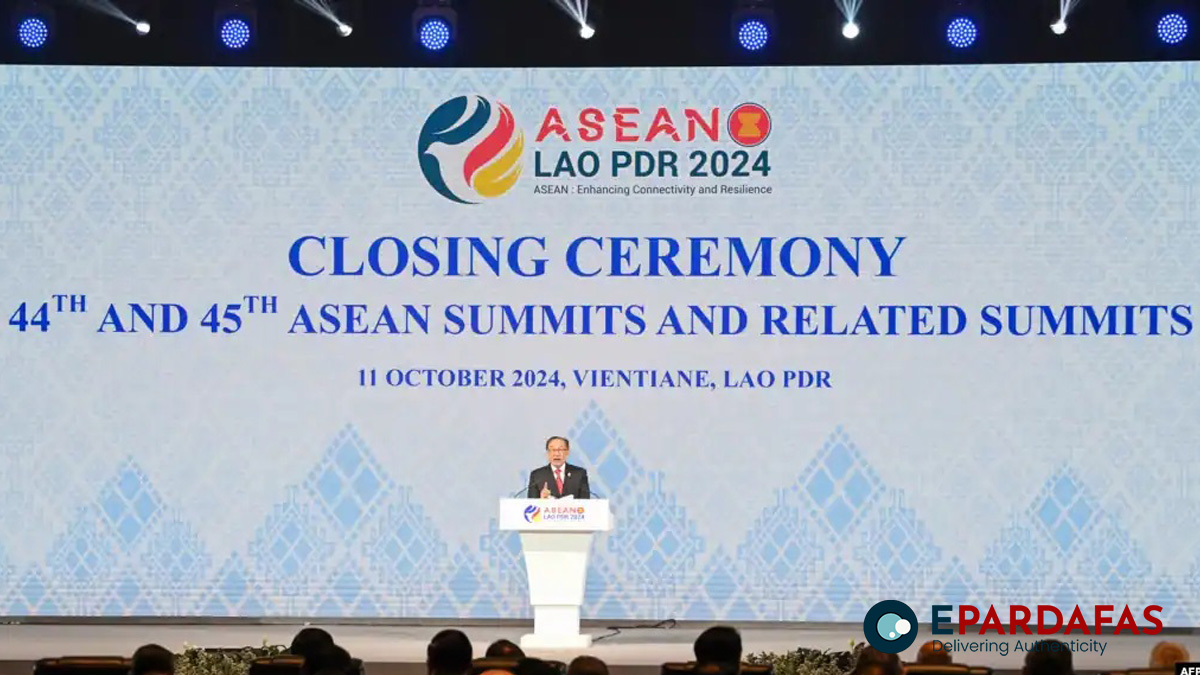Russia and China blocked a proposed consensus statement at the East Asia Summit (EAS) in Laos, mainly due to disagreements over language related to the contested South China Sea, according to a U.S. official on Saturday. The draft statement, prepared by the 10-nation Association of Southeast Asian Nations (ASEAN), was rejected by the two nations during the 18-nation EAS meeting on Thursday evening.
ASEAN had presented the final draft as a “take-it-or-leave-it” proposal, which was supported by the United States, Japan, Australia, South Korea, and India. However, Russia and China refused to proceed with the statement.
Russian Foreign Minister Sergey Lavrov, speaking at a news conference in Vientiane on Friday, criticized the draft for being politicized, claiming that attempts by the U.S., Japan, and other nations had derailed the adoption of the final declaration.
The primary issue of contention was language referencing the United Nations Convention on the Law of the Sea (UNCLOS). The draft statement included a clause reinforcing UNCLOS as the legal framework for activities in the oceans and seas, which went further than the 2023 EAS statement. The U.S. official noted that the proposed language did not favor any specific claimant in the South China Sea dispute.
China, which claims nearly all of the South China Sea, has resisted efforts to base a regional Code of Conduct on UNCLOS. Despite being a signatory to UNCLOS, China does not recognize a 2016 arbitral ruling that invalidated its expansive maritime claims.
Chinese Premier Li Qiang addressed the summit, reaffirming Beijing’s commitment to UNCLOS and the early conclusion of a Code of Conduct, while asserting that China’s claims in the South China Sea have “solid historical and legal grounds.” He urged non-regional countries to respect the efforts of China and ASEAN to maintain peace in the region.
The blocked consensus highlights ongoing tensions between ASEAN members and China, with the South China Sea dispute continuing to be a major point of contention in regional and international forums.














Comments